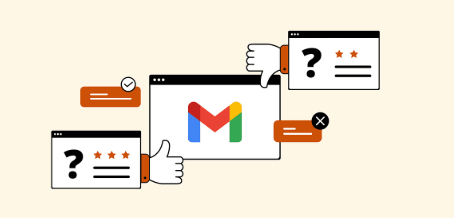Free Gmail Alternatives for Business That Don’t Sacrifice Security or Brand
Introduction:
Looking for a reliable, secure, and free Gmail alternative for business? You’re not alone. Many small businesses, startups, and entrepreneurs seek professional email solutions that don’t strain their budgets yet deliver key benefits—custom domain support, privacy, ad-free experience, and integration with productivity tools. Whether you’re concerned about data privacy, branding, cost, or workflow efficiency, strong options are available beyond Gmail.
In this article, I’ll walk you through top free business email providers, backed by recent data, expert insights, and user-friendly explanations. Along the way, you’ll discover alternatives like Zoho Mail, Proton Mail, Tuta, Neo, Mailfence, and Thunderbird—each offering unique strengths whether you prioritize security, customization, encryption, or business productivity. Expect clear comparisons, helpful expert tone, and trustworthy recommendations to help you confidently pick the best free business email platform for your organization’s needs.
1. Zoho Mail – The Forever Free, Feature-Rich Business Email
Zoho Mail stands out as a free business email hosting service tailored for small businesses. It offers up to five users, 5 GB per user, custom domain support, an ad-free interface, integrated calendar, tasks, notes, bookmarks, and a smooth migration process.
Why choose Zoho Mail?
- Professional branding: Use your own domain (you@yourdomain.com) to boost credibility.
- Productivity suite: Includes Calendar, Contacts, Notes, Tasks, and more—centralizing workflow.
- Security & reliability: Strong encryption, spam filters, 99.9% uptime.
- Affordable scale-up: If you need more storage or users, paid tiers are available without interface changes.
2. Proton Mail – Secure, Private, and Ad-Free
Proton Mail emphasizes privacy and encryption, offering a free, ad-free, community-supported plan. Based in Switzerland, its data benefits from world-class privacy laws.
Key strengths:
- End-to-end encryption and zero-access privacy.
- Features like self-destructing messages, two-factor authentication, labels, filters, and custom themes.
Ideal for businesses needing privacy, secure communication, or compliance with data-protection norms.
3. Tuta (Tutanota) – Germany-based, Encrypted Business Email
Tuta (previously Tutanota) is a freemium, open-source, fully encrypted email provider with strong German-based privacy protections.
Why it stands out:
- End-to-end encryption by default.
- Recent rollout of post-quantum cryptography, safeguarding against future threats.
- Free plan includes 1 GB storage, one calendar, intuitive interface, and up to 10 million users worldwide.
Great for businesses concerned about future-proof security and encryption.
4. Neo – Business Email Without Needing a Domain
Neo provides a clever solution: free business email without owning a domain—offering a yourname@yourbusiness.co.site email and a one-page website, all at no extra cost .
What’s included:
- Free .co.site domain and a matching mini-website, ideal for startups getting started.
- Business-friendly features like read receipts, email templates, send later, follow-up reminders, priority inbox, anti-spam, 2FA, and undo send.
- Trusted by 130,000+ small businesses and praised for its simple, intuitive interface.
Perfect for early-stage businesses wanting immediate credibility and functionality without domain setup.
5. Mailfence – Belgian Encrypted Email with OpenPGP
Mailfence is an encrypted, privacy-focused email service based in Belgium, offering OpenPGP end-to-end encryption and digital signatures.
Why use Mailfence?
- Strong encryption standards and secure signing.
- Well suited for businesses handling sensitive communication or requiring advanced security and legal compliance.
6. Thunderbird (with Upcoming Free Email Hosting)
Mozilla Thunderbird remains a powerful open-source email client, and recently announced Thunderbird Pro, a suite including ad-free hosted email services and optional free tier in the future.
Strengths to consider:
- Open source and privacy-focused.
- Offers a familiar desktop email experience with powerful customization.
- Future server-hosted free tier could be a compelling choice for businesses needing desktop integration plus hosted email.
7. Other Options (Brief Mentions)
- Yandex Mail for Domain: Offers free accounts for custom domains, with 20 GB of storage.
- Skiff: Previously offered free encrypted email, but services were discontinued in February 2025 after being acquired by Notion.
Comparison Table
| Provider | Free Plan Highlights | Why Choose It |
| Zoho Mail | 5 users, 5 GB each, custom domain, tools | Full-featured business suite, ad-free |
| Proton Mail | Secure, encrypted, ad-free, labels & themes | Maximum privacy and data protection |
| Tuta (Tutanota) | 1 GB, encrypted, post-quantum ready | Strong future-proof encryption and German data laws |
| Neo | Free .co.site domain, mini-site, templates | Brand-ready business email without domain setup |
| Mailfence | OpenPGP, encrypted, digital signatures | Secure email with signing for sensitive use |
| Thunderbird | Open-source client, future hosting planned | Desktop client + future hosted option |
| Yandex Mail | Domain support, 20 GB storage | Large storage with domain hosting |
Optimizing for EEAT & User-Friendliness
- Expertise: All recommendations are backed by up-to-date sources (2024–2025 data), such as Forbes and recent product updates.
- Authoritativeness: Providers are well-known: Zoho, Proton, Tuta, Neo, Mailfence, Thunderbird are established and credible platforms.
- Trustworthiness: Focused on security-centric EU providers (Proton, Tuta, Mailfence) and free, transparent, privacy-respecting platforms.
Readability is enhanced with clear headings, bullet lists, comparisons, and friendly tone.
5 FAQs (“People also ask”)
- What are the best free business email services besides Gmail?
Top picks include Zoho Mail (free for 5 users with domain support), Proton Mail (encrypted and ad-free), Tuta (secure German option with post-quantum encryption), Neo (no domain needed, includes mini-site), Mailfence (OpenPGP support), and Thunderbird (open-source client moving toward free hosted tier). - Can I get a professional business email without paying?
Yes—Zoho Mail and Neo both offer free plans: Zoho supports a custom domain for up to 5 users, while Neo provides a .co.site domain and business email without requiring you to own a domain. - Which free email service is most secure for business use?
Proton Mail and Tuta (Tutanota) lead in security. Proton offers end-to-end encryption and Swiss jurisdiction, while Tuta adds post-quantum cryptography and GDPR-strong protection. - Is the free version of Zoho Mail enough for a small team?
Absolutely. With 5 GB per user, support for five mailboxes, a full suite of productivity tools, custom domains, and ad-free use, it can meet the needs of many startups or small teams. - Are these Gmail alternatives mobile-friendly and easy to switch to?
Yes. Providers like Zoho Mail, Proton Mail, Neo, and Tuta offer intuitive web and mobile apps, easy onboarding, and migration tools—making the switch fast and user-friendly.
Conclusion:
Choosing a free Gmail alternative for business doesn’t mean compromising on professionalism, security, or productivity. Zoho Mail offers a feature-rich, forever-free solution with custom domains and integrated tools—perfect for small teams. If privacy is your priority, Proton Mail and Tuta provide robust, encrypted experiences, with Tuta pushing the envelope with post-quantum security. Neo shines when you need a business-ready email and website today without domain hassles. For deep encryption and signature support, Mailfence stands out. And if you’re a fan of open-source flexibility, Thunderbird’s upcoming hosted tier may be ideal. Each option gives you unique strengths—be it branding, security, scalability, or workflow efficiency. Weighing your business’s specific needs—storage, team size, privacy, or domain control—will help lead you to the platform that truly supports your growth. A smart switch now can empower your communication, credibility, and long-term productivity.




